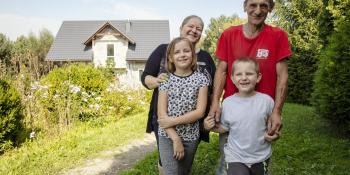
Stories section
Europe, Middle East and Africa
Habitat for Humanity is present in more than 20 countries in EMEA region. We are a nonprofit housing organization that helps low-income people around the world access decent housing.
In order to find out more about our work in the region we bring you interesting stories.
Habitat can offer detailed information, case studies, and housing research as well as hi-resolution photos to cover regional housing issues or specific problems in a country.
For more information contact:
Brian Feagans
Senior Director
International Communications
Phone: +1 404 420 6726
Email: [email protected]


